January
- A distinguished international scientist, Manus Patrick Henry, visited SUSU and delivered a lecture on the topic of modern measuring systems. The lecture’s topic was especially interesting for students and lecturers of engineering specialties. The scientist talked about an invention called Coriolis flowmeter – a device for measuring mass flow rate of liquids or gases, which he has been working over for more than twenty years. Manus Patrick Henry emphasized that his invention will allow for providing reliable functioning of sensor at a presence of vibration in pipe conduit, a long-lasting life service and simplicity of the flowmeter’s exploitation.
.jpg)
- SUSU hosted a delegation from the military-industrial complex of Russia. Guests from Moscow, Saint Petersburg, Izhevsk, Tula, Samara, Penza, Yekaterinburg, Kazan and other cities came to South Ural State University. The guests duly appreciated the university’s scale, development and the level of equipment. A joint session was organized by Chairman of the Federal Education and Methodology Association, Vice-Rector of the Bauman Moscow State Technical University, Sergey Korshunov, and Dean of the Bauman Moscow State Technical University’s Faculty of Special Mechanical Engineering, Vladimir Kalugin. The session allowed analyzing situation with personnel training in the specialties of Weapon and Weapon Systems and Aviation and Rocket-and-Space Equipment, and determine vector of development of the specialties.
- On Tatiana’s Day – the holiday of Russian students – Rector Alexander Shestakov as per tradition granted three wishes of students. By the Rector’s decree, each dormitory of the SUSU campus got new microwave ovens. Students got the opportunity to receive an e-mail address with domain @susu for getting licensed programs for their computers and tablets using the student discount. Moreover, now SUSU students can get charge-free training for TOEFL and IELTS international exams.
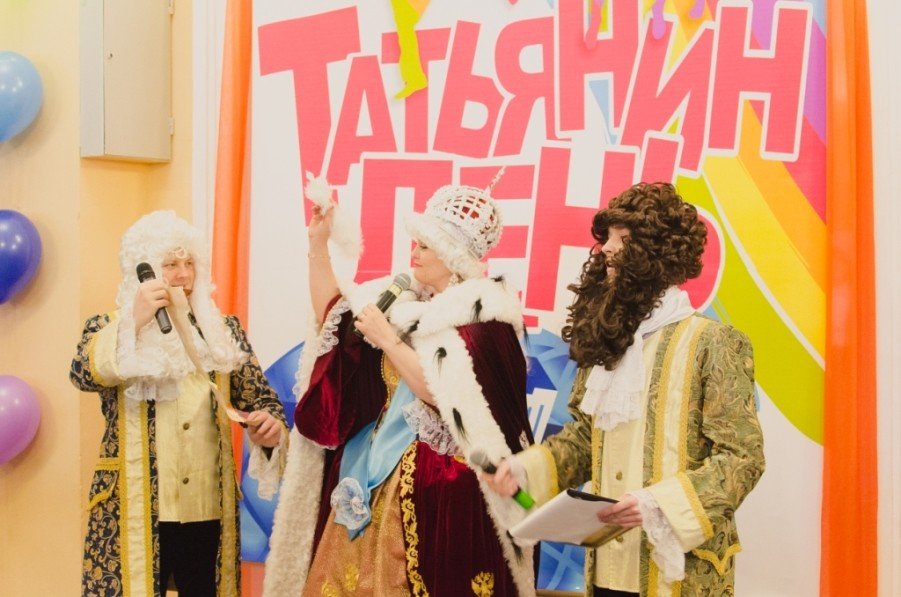
February
- SMS Group German Metallurgy Company decided to invest in the creation in the largest Eurasian university a unique laboratory of additive technology, the Laboratory of Mechanics, Laser Processes and Digital Production Technologies supervised by Philippe Bertrand, Professor of the National Engineering School of Saint-Etienne (ENISE, France), and Marina Samoduriva, SUSU Associate Professor and Candidate of Engineering Sciences.
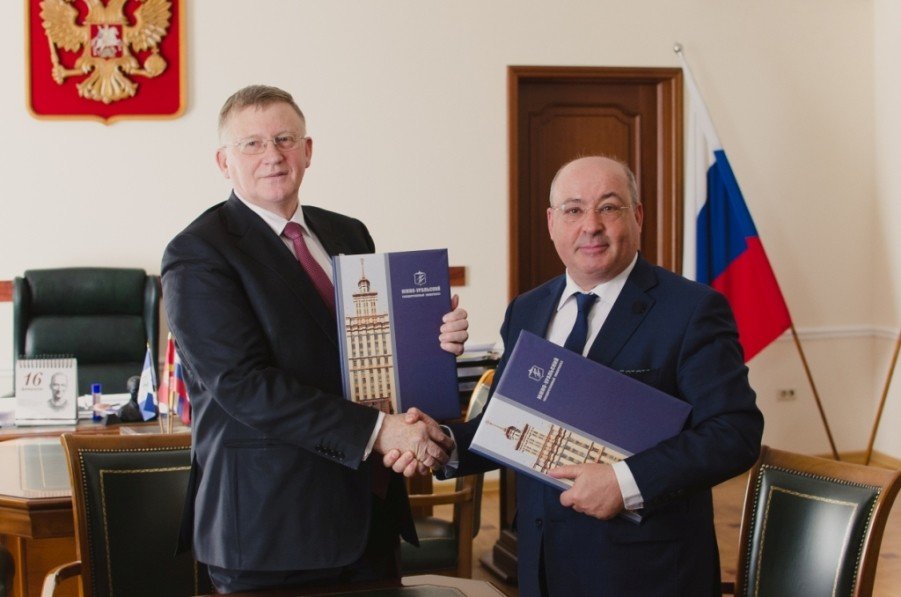
- SUSU student Anna Nechaevskaya took gold and silver at the International Winter Universiade in Almaty (Kazakhstan). More than 2000 students from 55 countries took part in the Universiade, competing in 13 sports. Anna earned a gold medal in the 5km pursuit with a result of 13:29:07 and a silver medal in the individual 5km race with a result of 14:21:09. The young lady combines studying at the SUSU Institute of Sport, Tourism, and Service and successfully work on her sporting career.
- A Conversation Club for non-formal friendly meetings of Russian and international students opened at the SUSU Center of Sociocultural Adaptation. In order to make communication more comfortable, no more than 10 people get gathered at such meetings. In the Conversation Club, all dialogues are spoken in Russian only; for international students who recently came to Russia this is a great opportunity to get the skill of spoken Russian language. Employees and volunteers of the Center help students to avoid serious mistakes in communication; they individually encourage newcomers, and help to adapt and feel confident.
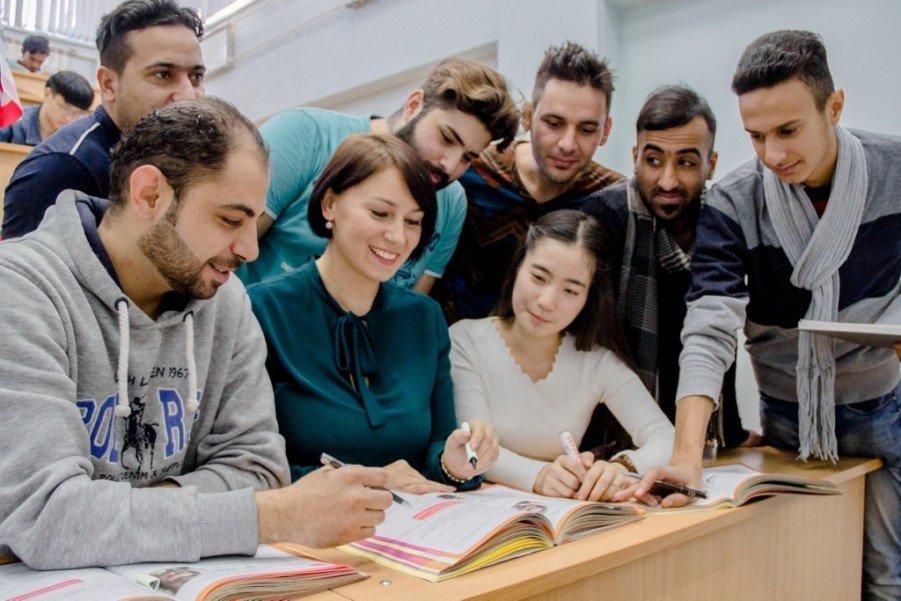
March
- Under the guidance of the European Journalism Training Association, the Second International Scientific and Educational Forum entitled “Communication Leader of the 21st Century” was held at SUSU. More than a thousand of talented school and university students from all over Russia, near-abroad and far-abroad countries took part in the Forum. Among key event of the Forum: Media Planet International Contest-Festival of Student and School Mass Media, International Congress on Public Relations and Advertising: Theory and Practice, International Science-to-Practice Conference of young scientists entitled “Language. Culture. Communication”, International Round Table Session entitled “Literature of the 20th-21st Centuries: Philosophy of Art”, etc. Participants of the Forum met with the leading media specialists of the country, took part in competitions in journalism, advertising and PR, visited professional workshops, presented reports at science-to-practice conferences, reviewed SUSU-TV student television and radio company and the world-level media platform – the 360-degree newsroom of SUSU. An important feature of the Forum of Communication Leader of the 21st Century was the fact that the European Journalism Training Association (EJTA – Belgium) took part in organizing the event.
- Kaspersky Lab’s Research and Education Center (REC) of Informational Security opened at SUSU. The REC was created on the ground of the SUSU School of Electrical Engineering and Computer Science. With the new Center, students of the largest South Ural’s university can organize an even better counteraction to existing threats to informational security, and protect national interests of the Russian Federation in the information sphere. Moreover, the partnership of South Ural State University and Kaspersky Lab AO intends training of specialists in the sphere of information protection and working on koint research projects.

- SUSU has entered the TOP 600 best world university for the first time according to the RankPro 2016/2017 Worldwide Professional University Rankings. The ranking is issued annually by the International Council of Scientists according to the program Global World Communicator. This year, 44 universities from Russia have entered the RankPro World Professional Ranking. By the final score, SUSU is ahead of Southern Federal University and Bauman Moscow State Technical University.
April
- SUSU students created a competition race car with internal combustion engine under supervision of team’s captain, master’s degree student Grigoriy Salimonenko. The entire process from the project’s creation up to its implementation took 5 months. This became possible thanks to the support of the university’s partner, the DTS-Ural.
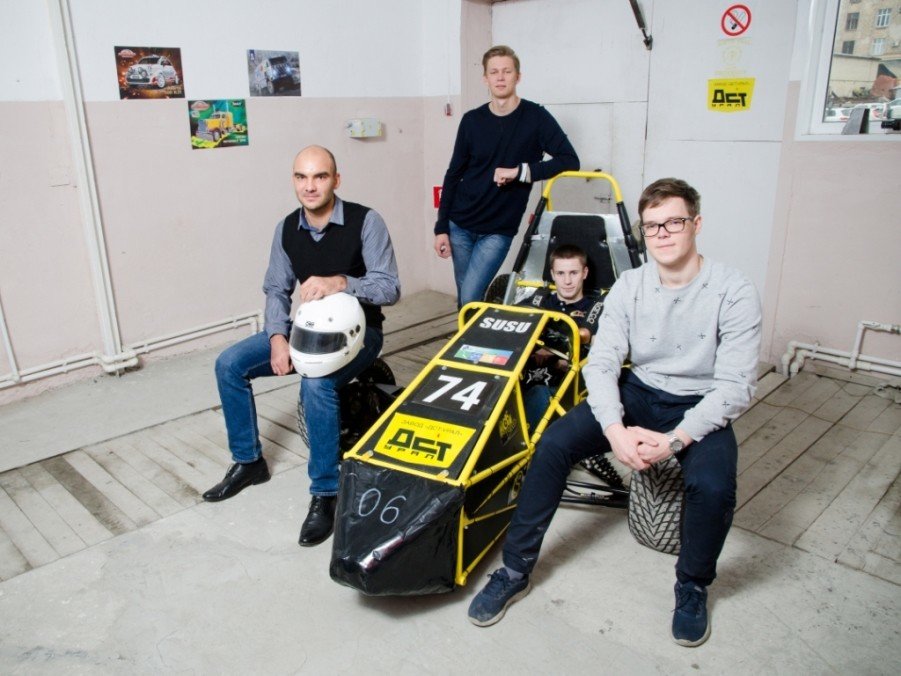
- Graduates and students of SUSU presented their innovative developments in various spheres of national economy to Skolkovo Foundation. Participants of the event, including students of the SUSU School of Electrical Engineering and Computer Science, Polytechnic Institute and small innovative enterprises presented to Skolkovo Center their inventions in the sphere of agriculture, healthcare, industry and transport. Besides, other inventions competing for grant support of the Foundation were presented to the Skolkovo Innovation Center: the use of geoinformation systems and distance exploration of the ground for monitoring of agricultural objects, ECG-recording T-shirts, innovative pavilions for waiting of public transport, and technology for recycling wastes of copper industry.
- SUSU Rector Alexander Shestakov with the President of Emerson Company, Edward Monser, made a business trip to the University of Oxford (Great Britain) where he met with Oxford professors Manus henry, Ron Roy, Lionel Tarassenko who is the Head of Engineering Department, and Edward Monser, the President of Emerson Company. The goal of the meetings was discussing options of three-sided cooperation and joint projects between SUSU and Emerson Company in the sphere of engineering. Lionel Tarassenko, who also holds the position as the Leader of the Biomedical Engineering Department of the Royal Academy of Engineering and Director of the Oxford Institute of Biomedical Engineering, proposed to perform academic exchange of postgraduate students and postdocs for the period up to 6 months with the purpose of joint publications and projects in the sphere of engineering.
May
- The Victory Waltz, dedicated to heroes of the Great Patriotic War, was held on the square in front of SUSU’s main building. The Victory Waltz included more than 130 couples – the grandchildren and great-grandchildren of the victors, for whom it is important to remember the great achievement of their grandmothers and grandfathers. Traditionally, students of the SUSU Institute of Social Sciences and Humanities and the Faculty of Military Education participate in this flash mob several times. The main audience was veterans of the Great Patriotic War and homefront workers of the central region and SUSU.
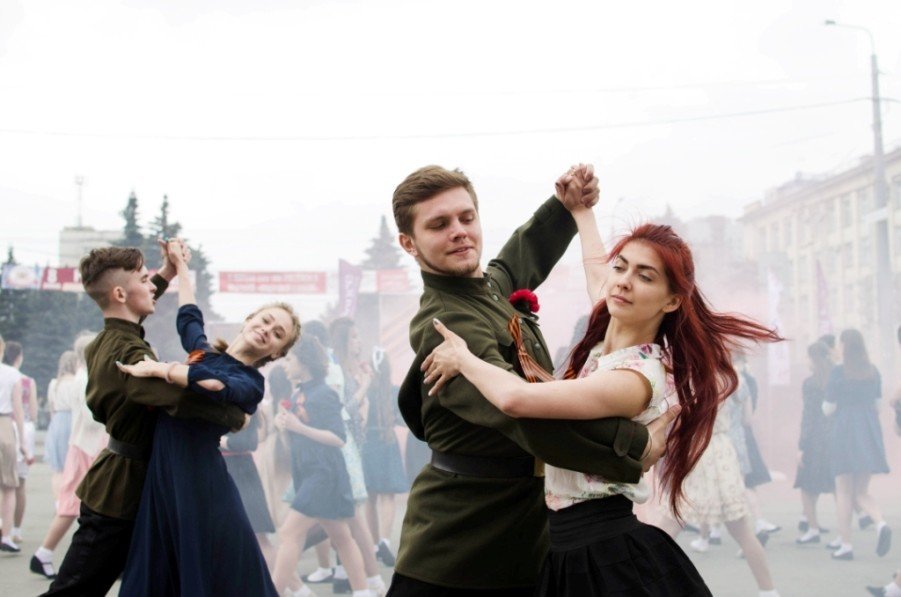
- Researchers from the SUSU ISTS created a unique device for monitoring the heart – an ECG-shirt which makes it possible to keep an eye on the work of the body’s most important organ and collect data for doctors. The device can be useful for sports medicine, but it can also be adapted for daily use by individuals, especially older people, who have issues with their heart and a high risk of heart attacks and strokes. As the scientists designed it, when a heart attack occurs, the device automatically passes on data about this to the user’s relatives, which may help them get the help they need on time. The gadget includes the capabilities of popular fitness trackers and fitness bracelets and will collect and analyze heart rate, time and intensity level of activity, steps, and also tracks risk of cardiovascular disease.
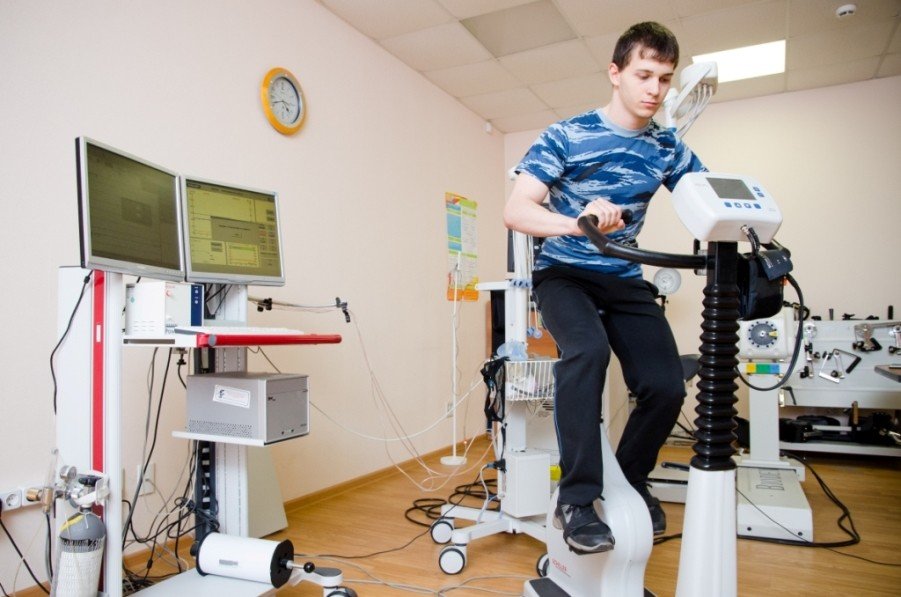
- SUSU students successfully participated in the Putnam Olympiad – they earned 1 first place prize and 2 second place prizes. The William Lowell Putnam Mathematical Competition is the main mathematical competition for students from the USA and Canada. The founder and organizer is the Mathematical Association of America. The competition is held across two three-hour sessions, where 6 problems are presented to be solved. Beginning in 2008, a number of European countries have been holding proxies of this competition. Students solve the same problems by the same rules, but the work is checked by an independent European jury rather than an American jury. This year, all of the students representing SUSU at the competition earned awards: Ravil Hairullin (ET-122) – 1st place diploma; Mikhail Evgenyev (ET-212) – 2nd place diploma; Marina Vasilenko (ET-312) – 2nd place diploma. The coordinator for holding the competition in Chelyabinsk was associate professor of applied mathematics and programming Alexander Evnin.
June
- A robot named Vanya was developed at SUSU to help international students study Russian. In his work he can actively cooperate with students and illustrate his presentations on the monitor. Right now, work is being done to make him a more intelligent conversation partner. In the language labs, he must help both students and teachers. The students mainly include those from China and Arabic countries. Vanya’s main goal is to help international students master Russian and remove pronunciation errors from their speech. He listens to students, the program detects the reasons for their errors, and shows these reasons as well as actions the student must take to fix time on the screen. The software was developed by the Department of Informational and Measuring Technology of the School of Electrical Engineering and Computer Science, and the methodology and content were developed by the Institute of Linguistics and International Communications.
.jpg)
- The International Research Council was held at SUSU, where the work of the last year was summed up and the university’s major research projects were evaluated. The world’s leading researchers in physical chemistry, biomedicine, and quantum informatics came to this event. Over three days, the members of the council discussed the results of the university’s work over the last year and also studied the process of realizing a few large projects in detail to give their expert evaluations of them. The results of events for transforming South Ural State University in to a university center of technological and innovative development for the Chelyabinsk Region was also presented. The curators of the SUSU international research laboratories and representatives of the Schools and Institutes presented the results of their work and strategies of pushing the university up the international subject-based ratings to the international researchers.
.jpg)
- The supercomputer RSK Tornado SUSU participated in the creation of the first Russian aircraft, MS-21, or “Magistralny Samolyot 21 Veka” (Mainline Aircraft of the 21st Century). The first passenger plane was created with Russian technologies using the most complex calculation operations of the SUSU supercomputer. The flight and technical data and economy of the MS-21 surpass existing analogues.
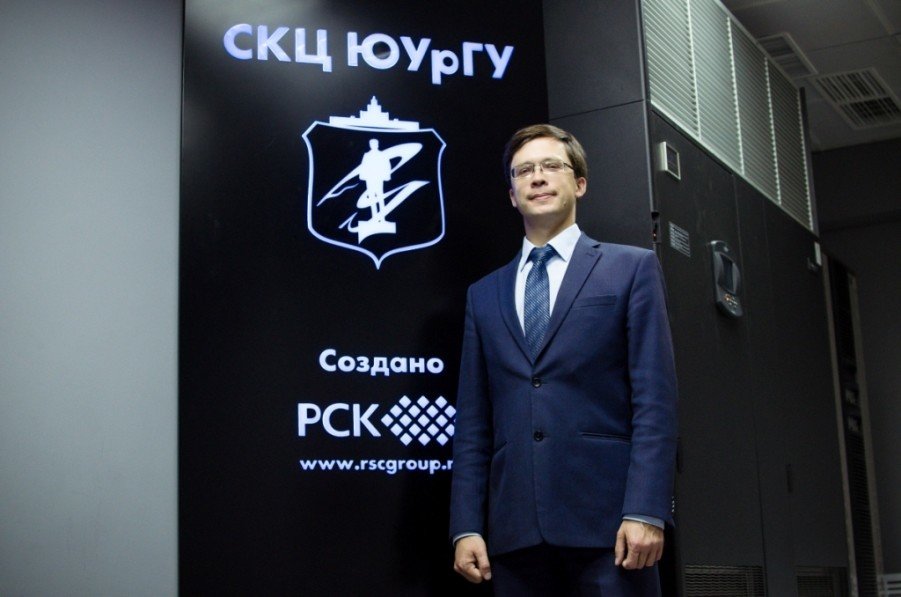
July
- Staff of the SUSU Geoinformation Technologies scientific education center participated in the international exhibition Field Day 2017 in the Troitsk Region of the Chelyabinsk Region. Agrarians from the whole district were invited to the exhibition as well as those from the Moscow, Nizhenovgorod, Kirov, Rostov, and Orenburg regions, Bashkortostan, Tatarstan, Udmurtia, and the Republic of Kazakhstan. Valentina Maksimova, head of the Geoinformation Technologies scientific education center, and her colleagues presented the Geoinformation Systems software and hardware complex to Governor Boris Dubrovskiy. This complex is used to monitor agriculture and determine unregistered, abandoned, or developed land. The complex includes several unmanned drones and geoinformatic systems developed at both SUSU and abroad, photos from satellites, and supercomputer calculations.
.jpg)
- South Ural State University, through the initiative of the Center of Elite Training, was the first university in Russia to become an International Member of the National Collegiate Honors Council. This opened up access to new software and research resources for SUSU students. It also became possible to contact universities directly and invite researchers to exchange information.
- The 8th exhibition of manufacturing developments was held Yekaterinburg-EXPO international conference center. One of the participants of this event was South Ural State University. SUSU’s booth presented our university’s key developments: projects of Academic Techniques and Technologies by the Research and Development Institute and the Center of Computer Engineering which were completed over the last year for KAMAZ PAO and developments of the various structural subdivisions of SUSU.
(1).jpg)
August
- A presentation was held for the new logo for SUSU as a university which unites Europe and Asia. SUSU Rector Alexander Shestakov officially presented the university’s new brand platform to the university’s teaching and administrative staff. The new elements of the logo – a gryphon and a lion – symbolize the university’s new, global role – to be a pivotal university the territory of the Russian Empire and a world-class university which develops communications in the East and the West.

- SUSU began work on executing innovative projects from the Vertolyoty Rossii (Helicopters of Russia) holding. A team of researchers from the leading Russian university and leader of the helicopter industry in Russia agreed on the final touches of the technical tasks for completing research using the power of SUSU’s supercomputers. The result of this partnership will be unique manufacturing propositions by SUSU researchers, especially reducing the visibility and armoring of helicopters, analogs for which do not yet exist in Russia.
- The leading researchers of the SUSU Laboratory for Computer Simulation of Medications, doctor of chemical sciences Mariya Grishina and candidate of chemical sciences Vladimir Potemkin participated in the Drug Discovery and Therapy World Congress (Boston, USA) organized by Eureka Conferences, Inc. The software developed at the SUSU Laboratory for Computer Simulation of Medications has a wide range of activities from modeling the chemical structure of medications to modeling formulas of molecules and determining their characteristics.
.jpg)
September
- Presentation of the SUSU Center of Computer Engineering was held, within the framework of which Science-to-Practice Conference “Modern Digital Technologies in Industry 4.0: Trends and Challenges” was organized. Among its participants were the University Rector Alexander Shestakov, General Director of the Center for Project Management in Industry Vladimir Pastukhov, Vice President of Siemens PLM Software in Russia and CIS Countries Viktor Bespalov, as well as the representatives of the Chelyabinsk Region Government Konstantin Zakharov and Vasilii Kokoryukin, and other specialists. Creation of the Laboratory for Digital Engineering Technologies within the Center of Computer Engineering became possible due to close collaboration with Siemens Company.

- SUSU took part in the Conference of the European Association for International Education in Seville and signed a series of international agreements with the world’s leading universities. During booth demonstration of the achievements and prospects of the University development the SUSU delegation, headed by the University Rector, Doctor of Sciences (Engineering), Professor Alexander Shestakov, signed agreements with authoritative ranking agencies THE and QS, as well as with a number of foreign universities. Signing of agreements facilitates solving of one of the major tasks of SUSU as a participant of Project 5-100, and namely promoting the University’s recognition at the international scale.
- At the economical forum “Strategy 2035” SUSU participated in elaboration of the strategy of the Chelyabinsk Region development. Specialists from South Ural State University were active participants of this forum. On the day of its opening the guests were delivered a speech by Deputy Head of R&D Department Evgenii Iogolevich, who presented innovation potential of our University and shared successful experience of fulfilling joint projects with the leading industrial enterprises of Russia.
October
- SUSU was listed in the TOP 10 of the inventive activity ranking among the universities of our country drawn up by “Expert” Analytical Center. South Ural State University was listed among the best Russian universities, having occupied the fifth position in the “Degree of Demand for Intellectual Property Facilities Created at the University” section, and the ninth position in the “Basic Conditions for Inventive Activity” section. In the general ranking SUSU climbed to the 12th position having left behind both federal universities and national research universities, including many universities-participants of Project 5-100.
.jpg)
- 2nd International Science-to-Practice Conference “Measurement: Status and Prospects of Development” was held at South Ural State University. The most prominent scientists in the field of metrology from Great Britain, Bulgaria, Ukraine, Kazakhstan and more than 20 regions of Russia took part in this big-scale scientific forum. The conference aimed at discussing the prospects of development of metrological activities in our country and in the world, fulfilling an approved policy on metrology in various countries, and continuing along the course of approximation of the principles of performing metrological activities in Russia to the analogous principles of international organizations and countries with developed industries. The conference participants listened to the speeches by Professor, Chairman of the Bulgarian Union of Metrologists Hristo Radev, Head of the Laboratory at D.I. Mendeleyev Institute for Metrology (St. Petersburg) Roald Taimanov, Oxford University Professor, Manus Patrick Henry (Great Britain), and SUSU Rector Alexander Shestakov.
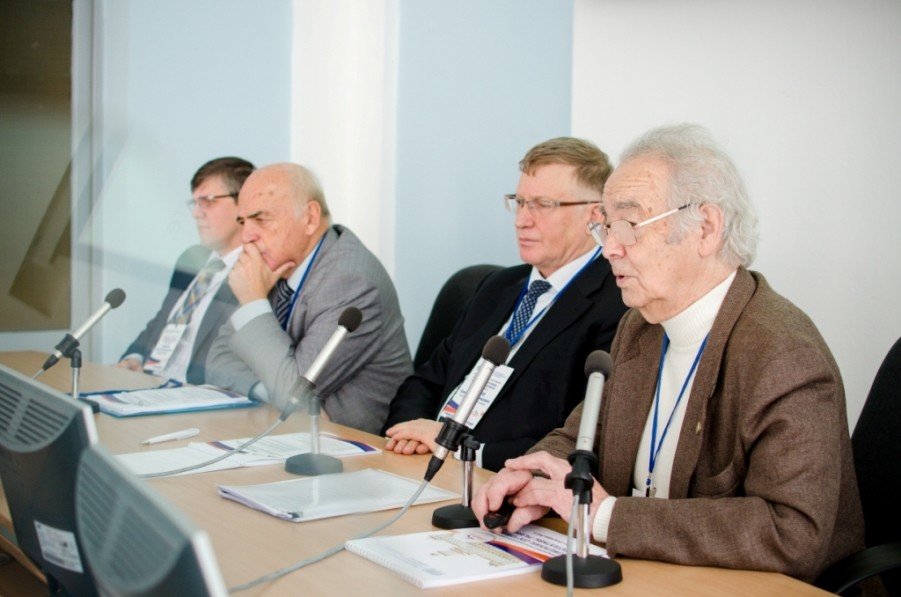
- SUSU entered the “Pushkin Institute” partner network. “Pushkin Institute” partner network is a voluntary association of legal entities sharing common approached to promotion and popularization of the Russian language, and also performing activities aimed at creating conditions for assuring accessibility of the Russian Language Learning Programs, and open education in Russian language around the world. Within the framework of the partner network a system of online support for the Russian language education is being created. The agreement signed with Pushkin State Russian Language Institute will allow SUSU to develop the brand of “Pushkin Institute” around the world.
November
- Forum of Rectors of Russian and Kazakhstan Universities was held at SUSU. A joint resolution, as well as 40 agreements on collaboration in the fields of science and education were signed within the frameworks of the 14th Russia-Kazakhstan Interregional Cooperation Forum. The Plenipotentiary Representative of the Russian President in the Ural Federal District Igor Kholmanskikh, Minister of Education and Science of the Russian Federation Olga Vasilyeva, Minister of Education and Science of the Republic of Kazakhstan Erlan Sagadiyev, and Governor of the Chelyabinsk Region Boris Dubrovskiy took part in this event.
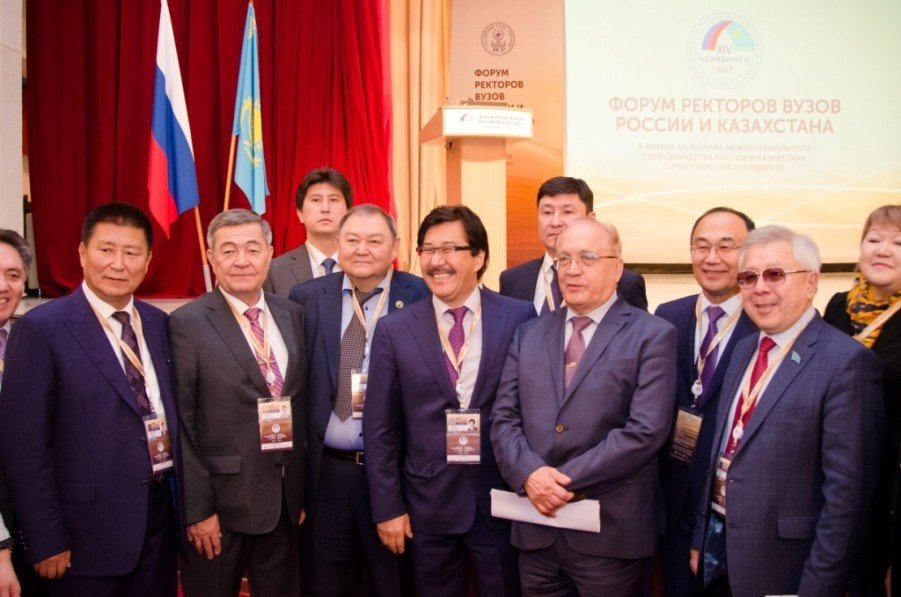
- SUSU improved its standing in the QS World University Rankings BRICS 2018. The number of universities participating in the Project TOP 50 increased to six (there were only four in 2016). It is important to note that South Ural State University was listed in the published ranking among such universities as Saint Petersburg Electrotechnical University “LETI”, Immanuel Kant Baltic Federal University, and Siberian Federal University.
- Within the framework of the “Industry 4.0” technology SUSU launched the fulfillment of its project “Industrial Cloud Platform”. Implementation of innovative production using Big Data methods (big data mining) for analyzing information received from sensor networks is a major trend in the world’s economic development. “Industrial Cloud Platform” project by the SUSU scientists studies the possibilities of creating the system of “Digital Twins” of production processes. A digital twin in a real-time mode synchronizes with production processes by processing data which it receives from wireless smart sensors. The most important task of a “digital enterprise” is automation of production control and upgrade of technological processes. The second project of SUSU and Magnitogorsk Iron & Steel Works deals with development of a computer vision system which analyses condition of produced goods by using the mechanisms of artificial neural networks and reveals possible defects.
December
- The winners of the contest for data analysis “SMS Group Data Challenge” held September 1st through December 1st 2017 were awarded at South Ural State University. The goal of the contest was to develop an algorithm which would predict sticking during the metal rolling process based on analysis of big data. 8 teams from South Ural State University and 2 teams from Germany participated in the contest. The team from the School of Electrical Engineering and Computer Science under the guidance of Mikhail Tsymbler, which included Aleksey Porozov and Yana Kraeva, became the winners. The winners received a cup, a certificate, and a check for 4,000 euros from the SMS Group company. Second place went to team from the Institute of Natural Sciences under the guidance of Tatiana Olenchikova, which included Nikita Semiklit and Stanislav Zankov. They were also awarded a certificate and a check for 1,000 euros from SMS Group.

- On the occasion of South Ural State University’s Birthday two laboratories were opened: Laboratory for Mechanics, Laser Processing, and Digital Technology, and Laboratory for Massive Online Open Courses, as well as a round table on “Surface Engineering: Laser and Sputtering Technologies” was held. Pino Teze, Vice President of SMS Group Company took part in this opening ceremony. Two main tasks will be solved by the laboratory: performing the required research and development, as well as practical implementation of the innovations in the state-of-the-art equipment. Additive technologies is one of the promising fields of creating of surface engineering with the required technological and physical-and-mechanical properties.

- SUSU was listed in the top ten of the ranking of the classical universities of Russia. Within the framework of the project “Social Navigator by “Russia Today” International News Agency” a National Ranking of the Russian Federation Universities was presented which shows demand for these universities on part of the Russian economics. In 2017 448 universities from 81 entities of the Russian Federation were included into this study. This year SUSU improved its standing in the ranking of the classical universities of Russia, having climbed from place 13 to place 9. The results achieved by SUSU in 2017 confirm the chosen vector of the University development was correct, and prove that our graduates are competitive and in high demand in the labour market.





%20eng.jpg)